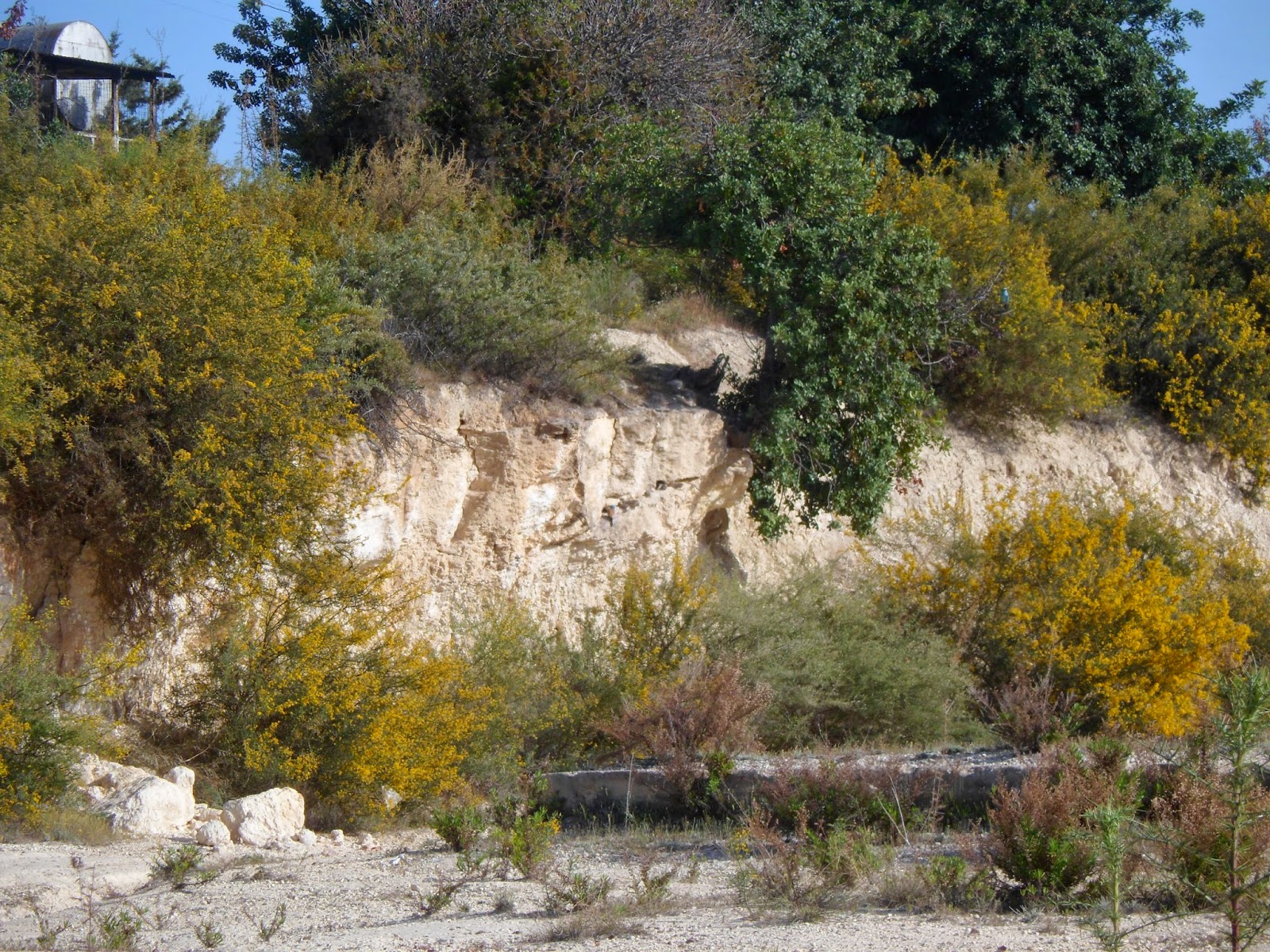The first roller arrived back on territory at Androlikou on
2nd April, just a few days after the last nest box was put up. It
remains to be seen whether the birds find the new bijou accommodation to their
liking. Hopefully the nest boxes will prove attractive so, failing that, I’ve
spent much of the month trying to confirm the return of roller pairs to last
year’s nest sites and identifying new ones.
 |
The first roller of the spring back
at Androlikou |
Considering what obvious and brightly-coloured birds rollers
are, it can be extremely tricky to locate their nest cavities when they’re not
using nest boxes. They are extremely wary when approaching the nest site and
also often forage several hundred metres from it. I’ve racked up many days-worth
of observation time trying to follow pairs of birds back to likely nest site
locations, only to find that the nest entrance is located 20m up a cliff face and
therefore out of the range of my trusty ladder. I have had some successes though,
and the number of accessible nest localities is now approaching my minimum
target of 20.
 |
| Yet another inaccessible nest site... |
 |
| An accessible nest site! Spot the roller pair... |
As well as searching for nests, I’ve been spending quite a
lot of time trying to confirm whether or not any of the geolocator birds from
last year have returned safely from Africa. It’s looking promising, as at least
three colour-ringed birds have been re-sighted so far, but I won’t be able to
definitely say whether they still have the geolocators attached until I have
the birds in the hand.
 |
View across the east of the study area: most
flat areas of land are farmed in some way. |
Aside from my research, I’ve been lucky enough to go out
ringing on a couple of occasions with a team from the University of Cyprus
(based in Nicosia). They are carrying out work on the endemic Cypriot
subspecies of scops owl, and the interactions between the endemic Cyprus
warbler and other Sylvia warbler species.
 |
| Cypriot scops owl |
 |
| Sardinian warbler |
 |
| Hoopoe |
Migration is at its peak in early to mid-April, and there
are birds everywhere right now. However, the most impressive observation I’ve
had recently was the massive sustained painted lady butterfly migration through
the island for several days mid-month. Huge numbers were seen migrating in a
north-westerly direction across the study area, and I was also lucky enough to find
at least five plain tiger butterflies (an incredibly scarce African migrant species
in Cyprus) mixed up in the tumult.
 |
| Painted ladies |
 |
| Plain tiger (via wikicommons) |
The bee-eaters are just starting to move through now though,
which means that spring migration is approaching its endpoint and the rollers
will soon be on eggs…
 |
| Collared flycatcher in the garden |
 |
| Great spotted cuckoo |
 |
| Red-footed falcon and lesser kestrel |
 |
| Little egrets |
 |
| Ortolan bunting |
 |
| Bee-eaters having a dust bath |
















No comments:
Post a Comment